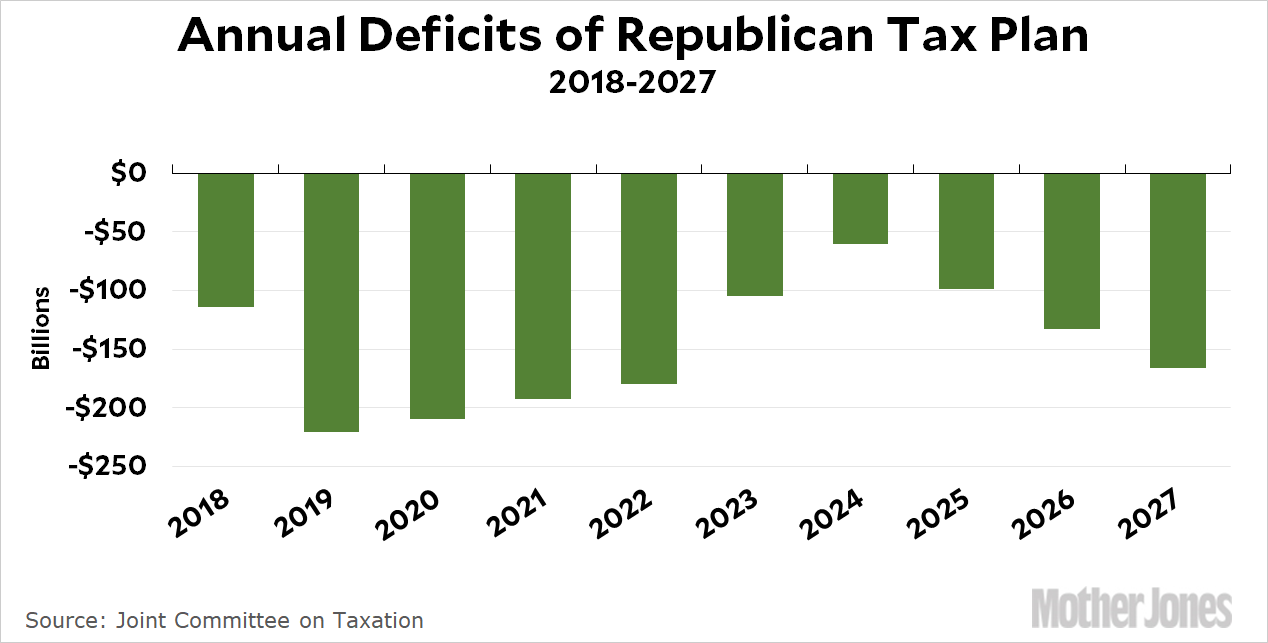I keep seeing stuff like this:
If Doug Jones, the Democratic nominee [for Alabama’s open Senate seat], wins next month, Mr. McConnell’s majority will shrink to one, possibly imperiling the Republican push to overhaul the tax code and most everything else that lawmakers are aiming to do to reverse their spiral before the midterm elections.
If Jones wins, the Republican majority will indeed be reduced to 51-49. But that hardly matters. The tax bill needs 60 votes to pass.
Republicans wrote reconciliation instructions allowing the tax bill to create a deficit of $1.5 trillion in its first ten years. But Senate rules still require the bill to be deficit neutral after the ten-year window. It’s not. It’s not even close. Here is Congress’ own estimate of the deficits produced by the Republican bill:

It’s obvious that these deficits aren’t going to suddenly stop in 2028. That means the tax plan isn’t deficit-neutral after the ten-year window, and that means Republicans will need 60 votes to overcome a Democratic filibuster. As far as I know, there are only two other options:
- Make the tax bill temporary and have it expire in 2028. That’s what George Bush did. But Republicans have said they don’t plan to do this, and making a business tax overhaul temporary is nuts anyway.
- Ignore the official estimates and simply declare the bill deficit neutral. However, this is tantamount to killing the filibuster: if the Senate can ignore CBO and JCT estimates, they can ignore the Senate parliamentarian too. That means future Senates can pass reconciliation instructions for pretty much anything and pass them with a simple majority.
The Capitol Hill press corps needs to push back on this and ask Republicans blunter questions about their plan. Do they think they can round up eight Democratic votes? Do they plan to have the bill expire in 2028? Are they prepared to override CBO and JCT deficit estimates? Do they plan to outright kill the filibuster? If not, then what are they up to?


















